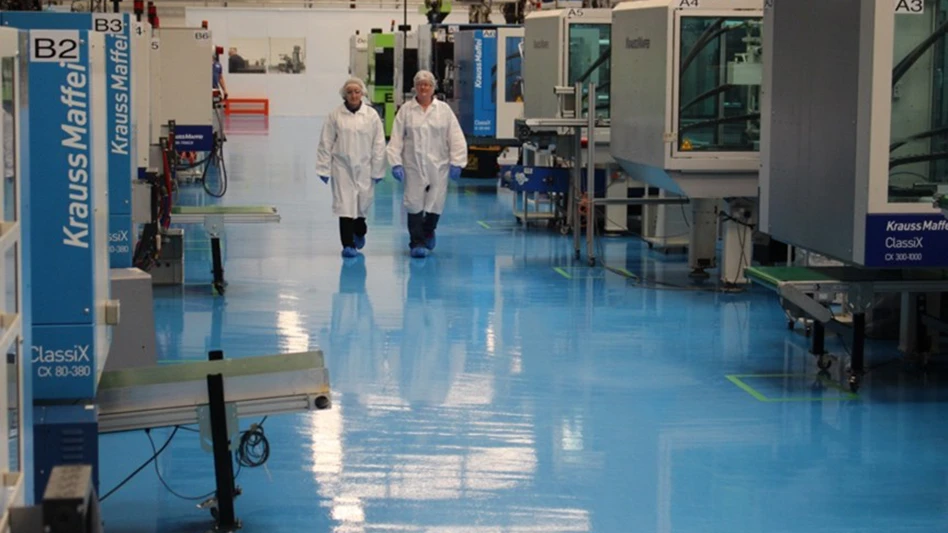
Milwaukee, Wisconsin – GE Healthcare officials announced FDA approval and the U.S. launch of their new breast imaging technology, the Invenia ABUS, proven to help clinicians find 35.7% more cancers in women with dense breasts than mammograms alone1.
"A growing body of research suggests the importance of screening ultrasound for women with dense breast tissue – that's about 40% of women," said breast imaging specialist Elise L. Berman, M.D., of Fairfax Radiological Consultants. "Mammography is still considered the gold standard for breast cancer screening but is less sensitive in women who have dense breast tissue. Supplementing the mammogram with automated breast ultrasound screenings should help us find tumors that cannot be seen on the mammogram and at an earlier stage than would have otherwise been found. We are optimistic that this more personalized screening approach can help us save more women's lives."
The Invenia ABUS enhances the patient experience by using 3D ultrasound technology to comfortably and quickly image women with dense breast tissue in approximately 15 minutes with new features that conform to a woman's body and provide more enhanced images. This launch comes at a critical time when there is growing awareness of the increased risk of cancer for women with high breast density. The more dense breast tissue a woman has, the higher her risk of developing breast cancer2 – oftentimes up to 4 to 6 times greater risk than women who do not have dense breast tissue3.
"Phelps Memorial Hospital Center prides itself on keeping up with cutting-edge technologies and we are very excited for our hospital and community to integrate this new technology into our mammography program," noted Senior Administrative Director of Ancillary Services at Phelps Memorial Hospital, Michael Glennon. "This highly sophisticated ABUS is more efficient than the traditional ultrasound exam and will significantly enhance our diagnostic capabilities and potentially improve outcomes for our patients."
Recognizing that breast cancer screenings can be an emotionally stressful experience for the patient, GE Healthcare has designed the Invenia ABUS with the patented Reverse Curve™ transducer to conform to a woman's anatomy, for better comfort and image performance. Further, the system uses Compression Assist, a feature which applies light levels of compression automatically to the breast for increased ease and image reproducibility. Following on the initial Fairfax and Westchester launches, GE plans to roll out the Invenia ABUS nationwide in 2014, with health providers across the country.
"We are excited about launching our most innovative and intuitive ABUS system yet, the Invenia ABUS, and are proud to make our first installs at the renowned facilities at Fairfax Radiological and Phelps Memorial," said Anders Wold, president and CEO of GE's ultrasound business. "As part of our ongoing commitment to improving women's health, GE Healthcare is focused on providing timely and meaningful technological innovations spanning the care continuum, including those for the screening of patients with dense breasts."
Source: GE Healthcare
1 FDA PMA P110006 summary of safety and effectiveness.
2 Boyd NF et al. Mammographic Density and the Risk and Detection of Breast Cancer. NEJM 2007; 356: 227-36. Boyd, et al, NEJM Jan 2007.
3 Tabar L, et al. Swedish two county trial: impact of mammographic. 2011;260:658 63.
Latest from Today's Medical Developments
- Boston Scientific to acquire Penumbra, expanding cardiovascular portfolio
- Star Cutter introduces Double Pilot Reamer
- #80 Manufacturing Matters - Machining Strategies to Save Time and Improve your Process for MedTech Components with Kennametal Inc.
- Real-world parts and expert manufacturing advice
- Experts discuss the latest in toolholding technology
- How permanent magnets are powering medical innovation
- Forecasting the year ahead in design and manufacturing
- Tecomet, Orchid Orthopedic Solutions announce merger agreement





